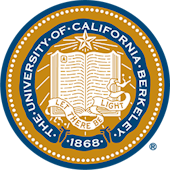
University of California, Berkeley

The University of California was chartered in 1868 and its flagship campus — envisioned as a “City of Learning” — was established at Berkeley, on San Francisco Bay. Today the world’s premier public university and a wellspring of innovation, UC Berkeley occupies a 1,232 acre campus with a sylvan 178-acre central core. From this home its academic community makes key contributions to the economic and social well-being of the Bay Area, California, and the nation.
Links
Displaying 161 - 180 of 209 articles

America’s low-income but high-achieving kids fail to find the necessary resources, and consequently fall behind. This has huge implications for innovation as well as the GDP.

A new study on inequality analyzes the impact of fiscal policy, dramatically altering the standard view of rich and poor in America. It may also change how voters and candidates think about the issue.

Biologists, along with most of the internet, have been puzzled as to why peacock spiders have such flamboyant courtship displays. So we decided to find out.

Candidates sparred among themselves and the media but still managed to debate some of the key economic issues that matter most to Americans – though they ignored a few.

Les migrations ne sont pas le propre de l’homme. Sur notre planète, les espèces circulent, notamment en raison des aléas du climat. Préparons-nous à accueillir les migrants du futur, bêtes et hommes.

Study shows that many of the utility-scale solar power plants in California have been placed near protected and environmentally sensitive lands.

Viewing human migration through the lens of natural history makes one thing clear: society needs to prepare for more migrations of people and the species we depend on.

Regulations are catching up with toxic chemicals we’re exposed to as products’ end users. But workers in un- or underregulated places are still at risk, even from chemicals designed to be “green.”

We’re only just beginning to understand the effects of cognitive enhancers on healthy brains.

Why do certain songs and colors make us feel a certain way?

There are a number of reasons why zebra’s stripes are useful to a zebra. The key question is: could some of them benefit society?

Academics from around the US react to the Fox News debate.

A re-analysis of research into deworming interventions at Kenyan schools has confirmed some findings and disputed others. However, it does not take away from the programme’s effectiveness.

Scientists build network of inexpensive air monitors to track emissions with fine-grained spatial detail – an alternative to satellites or pricey land-based CO2 monitors.

An analysis conducted in 2007 showed how severe the consequences would be if a country left the euro. How have eurozone officials let it get this far?

Switching to a high-deductible plan leads people to reduce medical spending even when it doesn’t make any sense.

President Obama pulled out all the stops in recent days, but it wasn’t enough to convince House Democrats that he would negotiate a fair trade deal in the Pacific.

NAFTA promised strong labor protections but failed to deliver. The Trans-Pacific Partnership is headed in the same direction.

Shell is going back to the Arctic to explore offshore drilling, but the company and the Department of Interior are not using the best practices for avoiding the risk of a spill.

Things have deteriorated drastically in recent weeks, but passage of IMF-linked reforms offers hope that Ukraine’s economy will make it through its darkest days.
